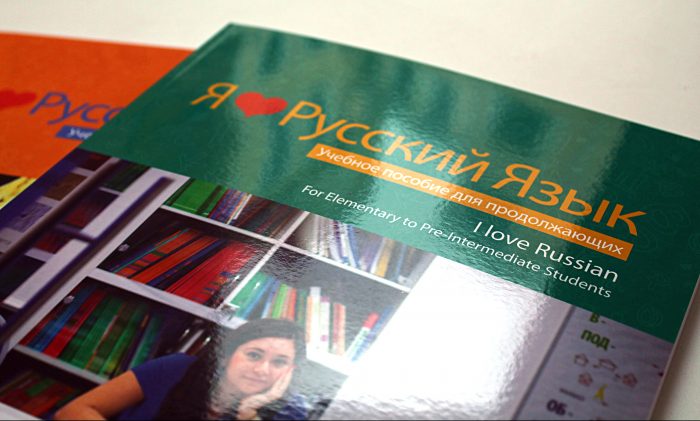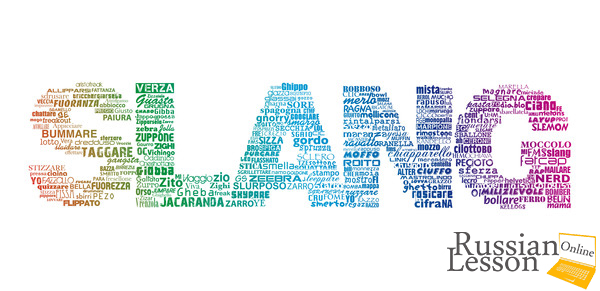
Some people are just fascinated by your choice of language but completely have the wrong idea of it. Other people don’t have a clue about Russian but have still somehow have a bunch of prejudices and stereotypes against it. Here is what every student of Russian hears at some point:
“Why are you learning Russian? It’s such a harsh language.”
There are various answers to this. And before you explode, consider that the people who tell you this have never properly heard Russian, let alone actually engaged with the language. They probably perceive Russian as the language spoken by the criminals in the latest James Bond or Mafia film. Let’s bet that the only words they know are „Давай!“ (Davai), „Калашников“ (Kalashnikov) and „Водка“ (Vodka).
And even if they were right, you don’t only learn a language because it sounds nice, do you? There are lots of reasons why someone would choose Russian over French or Italian (which are usually considered beautiful languages). Here are a few: first, the Russian speaking realm is, like, 27 times bigger than the French realm (hence more Russian speakers). Second, fewer people actually speak Russian as a foreign language – which gives you, a speaker of Russian, an advantage over the large majority who do not understand or speak it. Just imagine how it will look on your CV! That’s just a simple fact no one can deny.
“It’s such a difficult language. You’ll never manage to learn it properly.”
This is one of the stereotypes you might not only hear from your friends at home but also from Russian native speakers. They know that Russian is certainly not the easiest language to learn (with six cases and aspects and all of that) and they enjoy pointing it out to foreigners. Don’t get me wrong – they certainly will appreciate you learning their language, so don’t be afraid to actually speak Russian. Nevertheless, they are proud of that fact that Russian is a difficult language. So just keep some arguments in the back of your head, such as the fact that Finnish has 16 regularly used cases or that you’d need to remember between 3,000 and 4,000 Chinese characters just to be considered literate.
“Russian has so many consonants and sounds, how do you manage to pronounce their words?”
That is among the easiest stereotypes to listen. Because a lot of Russian letters look like consonants to people who don’t know how to read Cyrillic, that does not mean that there actually are no vowels. Just compare how many vowels there are in the English language: a, e, i, o, u. And now have a look how many there are in Russian: э, е/ё, а, я, ю, ы, и/й, о, у … Any questions?
“Girl, why do you have to study Russian? It’s such a male and unsexy language!”
Someone tell me please: how can a language be female or male? Russian actually pays lots of attention to which gender is being talked about, but this does not mean that this kind of stereotypes is true. The past of verbs, for example, always changes according to the gender of the subject. So a women would say: „Вчера я погулала в парке.“ (Yesterday I was walking in the park), whereas a man would say: „Вчера я погулал в парке.“ (Yesterday I was walking in the park). Same with Russian adjectives.
“What is Russian good for? Are you going to be a spy?”
Well, first of all, no one said that you are only learning Russian because you need it for work. Maybe you are interested in Russian literature and just want to be able to read Tolstoi’s “War and Peace” in the original version. And secondly, there are certainly many jobs other than spy where speaking Russian could come in handy: for example, business relations to Russia are growing and lots of international companies need a Russian speaker in their communication sector. Besides, translators and interpreters for Russian-English (Russian-German, Russian-Italian, etc.) are always in short supply.
Chances are quite high that you will hear something along those lines once you start learning Russian. Just try to remember why you are passionate about Russian in the first place and see these comments more as a challenge & a reason for you to learn Russian even faster and better.

Students will be happy to learn that the Russian Government has today announced plans to make Russian language easier in an effort to simplify greater international engagement. …

In a previous post, we revealed that Russians don't really say “na zdarovje” when they toast. While the phrase has been popularised in English language media – and a lot of Russians will nod politely and clink glasses with you if you use it – it’s not something a native speaker would ever…

Improve your Russian while working as an expat? Mission possible! …

What could be a better way for Russian immersion than reading, especially when you read the books that you find interesting and that can give you a better idea of the culture of Russia? Co-founder of Liden & Denz, Walter Denz shares his experience on how reading Russian literature can improve your…

Learning a language is hard. Keeping it when you don't have classes is even harder. So this article is not about how to learn Russian, but how to maintain your Russian. …

Learning the Russian language can be a long, hard slog. Days, weeks, months spent poring over textbooks, attempting to understand the cases, crying over aspects, endeavouring to pronounce ы and щ. …

Many language learners desire to communicate well with native speakers of the language or those who speak it. I have always dreamt of talking more fluently and texting through social media with my Russian friends better. It is no exaggeration to say that good communication skill gives you an…

If you are already able to speak Russian, then congratulations! You are on a good way. But even if you are, let’s say, on level B2, you have probably been in situations with Russians, especially younger people, where you did not understand everything they said — either because they were speaking…